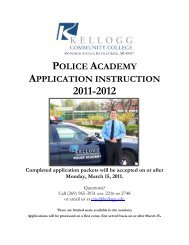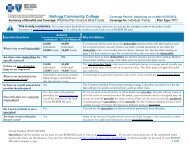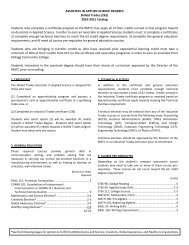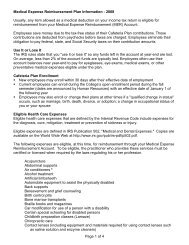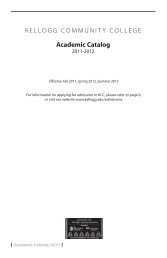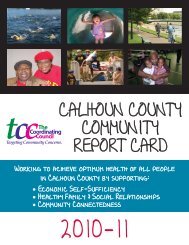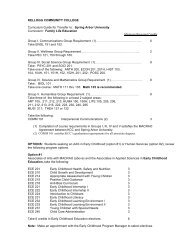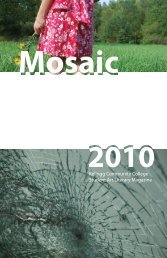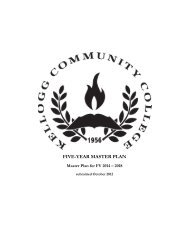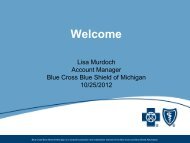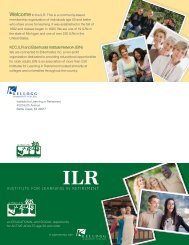Kellogg community college nursing student handbook
Kellogg community college nursing student handbook
Kellogg community college nursing student handbook
You also want an ePaper? Increase the reach of your titles
YUMPU automatically turns print PDFs into web optimized ePapers that Google loves.
at all. The only exception to this policy is as follows: Cell phones may only be used for clinicallyrelated<br />
reasons in designated <strong>community</strong> settings as approved by the clinical instructor and<br />
<strong>community</strong> facility.<br />
Students are encouraged to always provide their family/emergency contact with the location and<br />
phone number of the clinical unit in the event of a true emergency.<br />
Personal Electronic Devices<br />
No use of personal electronic devices such as computers, smart phones, BlackBerrys, iPhones,<br />
iPads, PDAs, tablets, cameras, recording devices, etc. are allowed in the clinical setting.<br />
Clinical Setting Internet Use<br />
Use of the internet on clinical site computers is restricted to patient care purposes only if internet<br />
access is allowed by the clinical agency.<br />
Social Networking<br />
As members of the <strong>nursing</strong> profession, <strong>student</strong> nurses not only represent the <strong>college</strong> but the<br />
profession of <strong>nursing</strong> and are subject to public scrutiny. While social networking on websites is a<br />
great way to communicate, express yourself and connect with others, <strong>student</strong> nurses must<br />
understand that the information and pictures they post, or others post about them, may adversely<br />
impact their personal safety, impugn personal or institutional character, could violate patient<br />
confidentiality (HIPAA) and <strong>student</strong> confidentiality (FERPA), <strong>nursing</strong> program or <strong>college</strong> policies<br />
and undermine their career after <strong>college</strong>.<br />
Student nurses will be held responsible for any social networking conduct that compromises<br />
patient confidentiality, the reputation or integrity of the <strong>nursing</strong> program and clinical sites.<br />
Before posting anything on a social networking website, understand that anything posted online is<br />
available to anyone in the world and that <strong>college</strong> staff may monitor the website. Nothing about<br />
patients and clinical experiences may be posted on any social network.<br />
Consequences of Violating Technology and Social Networking Policy<br />
There are several implications related to the role of the professional nurse on social networking<br />
websites. See https://www.ncsbn.org/Social_Media.pdf for more information on appropriate and<br />
inappropriate uses of social networking.<br />
Violation of patient privacy and confidentiality will be subject to HIPAA procedures, guidelines and<br />
consequences.<br />
Students who share confidential or unprofessional information do so at the risk of disciplinary<br />
action, including failure in a course and/or program dismissal.<br />
Each <strong>student</strong> is legally responsible for individual postings and may be subject to liability if<br />
individual postings are found defamatory, harassing, or in violation of any other applicable law.<br />
Students may also be liable if postings include confidential or copyrighted information such as<br />
texts, music, videos, images, etc.<br />
Testing Policy (Classroom Exams)<br />
Course Grading Policy<br />
Course grades reflect a <strong>student</strong>’s achievement of course content and instructional objectives<br />
using a variety of assessment methods. Course grades will reflect the following:<br />
Page 29 of 46



